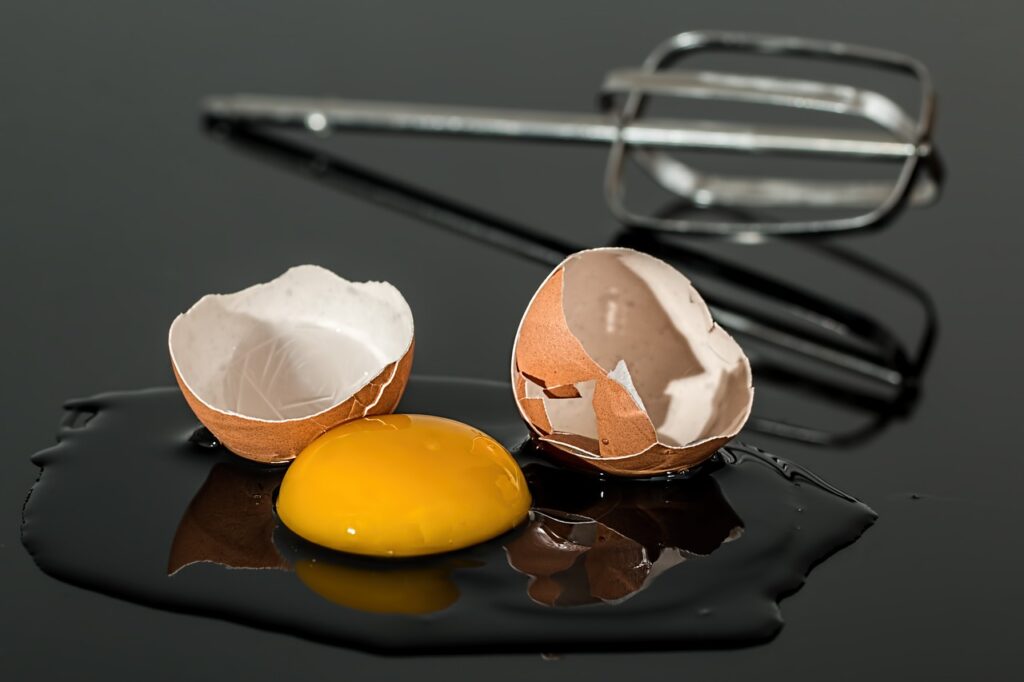Table of Contents
Importance of Hydration for Overall Health and Well-being
Hydration is essential for good health and overall well-being.
Every cell, tissue, and organ in our body needs water to function properly. Water regulates our body temperature, transports nutrients, flushes out toxins, and keeps all of our bodily systems running smoothly.
Dehydration can lead to a host of health problems such as headaches, dizziness, dry skin, constipation or digestive issues.
In fact, even mild dehydration can affect mood and cognitive functions like memory recall and reaction time. So it’s important not only to prioritize staying hydrated but also to start recognizing the early signs of dehydration.
A lot of people think that thirst is an accurate indicator of hydration levels, but by the time you feel thirsty you are already slightly dehydrated. It’s best to stay ahead of your fluid consumption levels by drinking regularly throughout the day whether you feel thirsty or not.
To achieve optimal hydration, aim for at least 8-10 glasses (or around 2 liters) per day although this amount may vary depending on factors such as physical activity level or climate conditions.
Maintaining healthy hydration habits may take some practice but it will pay off with a more energetic feeling all-around!
How to Calculate Your Daily Water Intake Requirement
Drinking enough water is essential for maintaining good health, but how much water should you be drinking each day? The answer depends on a number of factors including your age, gender, activity level and climate.
The recommended daily intake of water varies from person to person but as a general guide:
- Men should aim for around 3.7 litres (125 ounces) per day
- Women should aim for around 2.7 litres (91 ounces) per day
Note that this includes all fluids consumed throughout the day such as tea, coffee or juice. However too much caffeine can act like a diuretic and lead to dehydration so it’s best not to rely solely on these types of beverages for hydration.
You may need more or less depending on several other factors such as:
- Your body size and weight: A larger person will require more fluids
- Your activity level: If you sweat frequently due to exercise or work outdoors in hot weather conditions then your fluid needs are likely higher than average
- Pregnant women typically require higher fluid intake levels during pregnancy
- Breastfeeding mothers also have higher requirements due to additional milk production demands.
- If you are suffering diarrhea, vomiting, fever or any sickness involving couphing sweating etc., try increasing your fluid intake since your body loses apporoximately twice amount than usual
So when calculating your own daily water requirement take into consideration those previously mentioned variables in addition to checking with a medical professional if necessary.
Remember that drinking enough water provides numerous health benefits including flushing out toxins from the body, maintaining clear skin and promoting a healthy digestive system.
The best way to stay hydrated is to carry a refillable water bottle throughout the day and sip regularly, especially during meal times.
Healthy Alternatives to Sugary Drinks and Beverages
Sugary drinks like soda, sports drinks, energy drinks and even fruit juices are a major culprit behind many health problems. They contain high amounts of added sugars which can lead to weight gain, tooth decay, increased risk of type-2 diabetes and heart disease.
Instead of reaching for that sweet drink or beverage with hidden sugar content, try these healthy alternatives:
- Fruit-infused water: Adding some fresh fruits like lemon slices, berries or cucumbers into a glass of water can make drinking plain water more fun and flavorful.
- Natural fruit juice: Instead of packaged fruit juices which generally have added sugars and preservatives, go for freshly squeezed natural juices with no added sugar. You can also mix different fruits together to get creative flavors.
- Cold herbal tea: Infuse your favorite herbs in hot water before chilling it in the fridge for refreshing cold tea without any additional calories from sweeteners.
- Milk/Milkshake: Milk is a great source of calcium as well as other nutrients. Instead of flavored milkshakes or commercial smoothies that usually contain high amounts of added sugars go for homemade smoothies made from natural ingredients such as spinach leaves or bananas.
In conclusion, choosing healthy hydration habits not only keeps you refreshed but also helps prevent numerous health issues associated with sugary beverages. Try incorporating these simple swaps into your daily routine today!
Tips to Stay Hydrated on-the-go or while Traveling
Traveling can often disrupt our usual hydration habits. Whether you are rushing through the airport, sitting in a car for hours, or simply neglecting your water bottle due to other priorities, it’s essential to ensure that you stay hydrated at all times.
To avoid dehydration and its associated symptoms such as fatigue, headache, dizziness and inability to concentrate, follow these simple tips:
- Carry a refillable water bottle: Invest in a sturdy refillable water bottle with an eco-friendly design that can withstand frequent use whether you’re at home or traveling. You can easily find one online or purchase one from your nearest store. Always make sure to fill up before leaving your accommodation and keep refilling throughout the day.
- Add flavoring if necessary: If plain water doesn’t appeal much to you add little natural flavors like lemon slices, mint leaves cucumber slices etc. Doing so will help encourage more regular hydration habit by making it taste better.
- Eat fruits with high-water content: Besides drinking lots of clear fluids eating foods rich in water content like cucumbers,watrermelons,pineapples ect.. is an effective way of staying hydrated while traveling.
- Avoid sugary drinks & alcohol:Soda cocktails ,juices & energy drink aren’t good substitutes for fluid intake during travel since they tend dehydrate rather than hydrate.Caffeinated drinks too although provide some relief could lead worsen any preexisting dehydration condition
- Pack snacks: Fruits being recommended above but packing non perishables fruits with high water content like strawberries, grapes is a smart move to stay hydrated during travel.
- Take breaks: Make sure you take necessary respites throughout your journey and hydrate yourself while on it. Long flights or road trips can pose as serious health risks if not taken seriously so be mindful of this tip when travelling
By following these tips, you can maintain healthy hydration habits while traveling. Remember that staying well-hydrated keeps your body and mind functioning optimally – helping you make the most of your travels!
Foods that Can Help You Stay Hydrated Throughout the Day
Drinking water is crucial for maintaining proper fluid balance in our bodies, but did you know that certain foods can also help keep you hydrated throughout the day?
Fruits and vegetables are excellent sources of hydration. They contain high amounts of water as well as important vitamins and minerals. Some examples of hydrating fruits include:
- Watermelon: This juicy fruit contains over 90% water content per serving which makes it an excellent choice for staying hydrated.
- Cucumber: Cucumbers have a refreshing and mild taste, they consist mostly of water (about 95%) so munching on them can help beat dehydration quickly.
- Grapefruit: Grapefruits boast high vitamin C levels along with around ~88% water content which makes them perfect in aiding hydration “under-the-radar”
- Pineapple: Pineapples have an average of about ~86% Water Content per cup; such impressive stats prove they’re a good option to aid rehydration after training or strenuous physical activity.
In addition to fruits, several vegetables make great choices when it comes to boosting your daily fluid intake. Vegetables rich in fluids include :
- Lettuce greens:Lettuces like Romaine Lettuce contains up to ~96 % H2O making getting fiber not just tasteful but rather healthy too!
- Celery stalks: The crunchy vegetable has one main characteristic – being Fibrous yet Juicy! Celery consists of ~95% water along with impressive amounts of fiber – munch away at celery and fill up on fluids!
- Cauliflower: This veggie might not be your first thought when it comes to hydrating foods, but it contains a substantial amount of water. One cupful has over 92% water content helping you fight dehydration in an unexpected way.
Incorporating fruits and veggies into your daily diet is an easy way to stay hydrated, so don’t be afraid to mix things up!
By making smart choices about what you eat, you can help ensure that your body stays properly hydrated throughout the day which will improve overall health as well!
Benefits of Drinking Water with Lemon Juice
Lemon juice is rich in vitamin C, antioxidants and other essential nutrients that can provide several benefits to your health. When added to water, it not only enhances the taste but also provides additional benefits.
1. Boosts Immunity: Lemons are a great source of vitamin C which can boost immunity and protect against infections and diseases.
2. Aids Digestion: Citrus flavonoids in lemon juice possess digestive properties that can stimulate the production of bile which aids digestion and prevents constipation.
3. Promotes Weight Loss: Drinking lemon water daily may aid weight loss by reducing hunger cravings due to its high pectin content, which makes you feel fuller for longer periods.
4. Alkalizes Body pH Level: The citric acid present in lemons helps alkalize the body’s pH level which is beneficial for overall health as an acidic environment promotes disease-causing bacteria growth in our bodies..
In conclusion, incorporating drinking water with lemon juice into your daily routine could offer numerous potential health benefits worth considering




